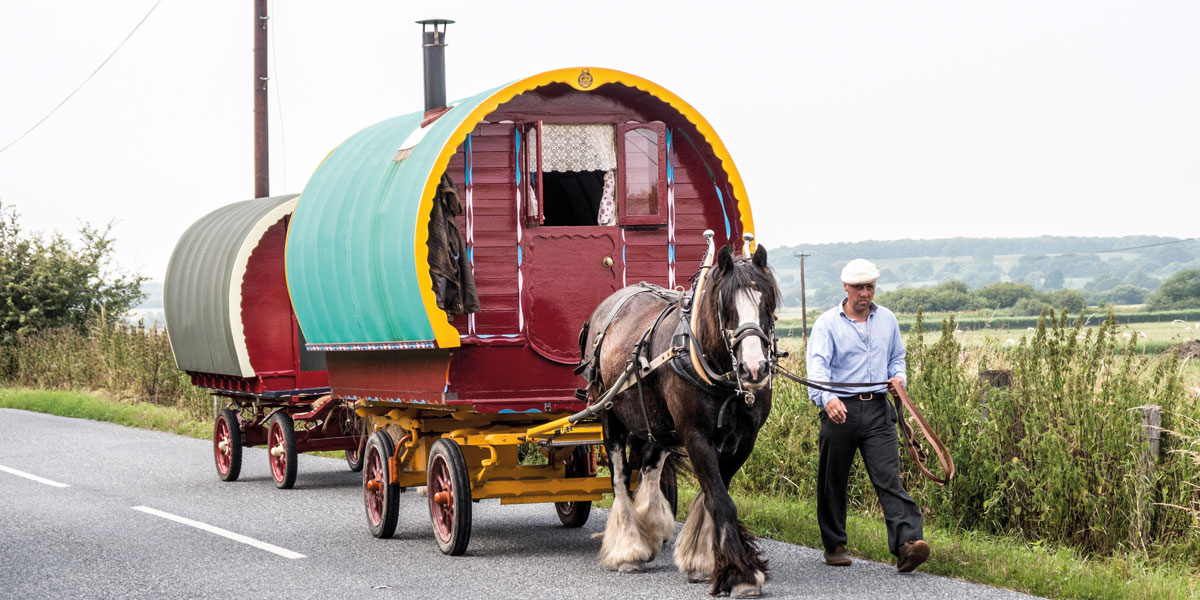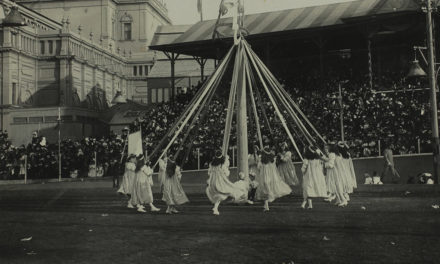When Romani people first arrived in power to evict nomadic people on the spot. UK officials Scotland in the 15th century, their clothes, skin colour and customs made them stand out. Seen as exotic, they were referred to as “Gypsies” due to a mistaken belief they had come from Egypt. However, Romani and Traveller communities originate from the north-western parts of India, from where they then travelled to Europe. Ornately painted barrel-topped wagons and colourful clothes are, for many, still the image that comes to mind when visualising the Romani community. One distinguishing feature of this rich culture is that Roma people have been a nomadic community for centuries. Although a few travel today, nomadism remains a significant part of Romani heritage.
“Romani” is the term used to describe the many ethnic subgroups within it, one of which is the Romanichal in the UK. The UK also places Romani people, or Roma, under the Gypsy, Roma and Traveller (GRT) communities title along with a wide range of individuals who may be de ned in relation to their ethnicity, heritage and way of life, including Scottish Gypsy Travellers and Irish Travellers. Nowadays, Romani people make up about 200,000 of the country’s population, with an unofficial figure estimated to be higher. Nonetheless, their world population is estimated to be between two to 12 million, with the largest demographic living in the United States. The community is a part of the rich fabric of world history and has cultivated a strong identity over centuries. But is this identity in danger today?
A Nomadic Community
Nomadism is an important part of Romani history and culture. According to The Traveller’s Times, all people were nomadic at one time, until around 10,000 years ago when agriculture was developed and farming became the norm. Those that did not settle around this time, due to drought, war or simply lifestyle, became travelling people. Today, travelling is still a key aspect of Romani identity and is most under threat.
A recent Conservative government proposal aims to criminalise trespassing in the UK, meaning that setting up encampments on land one does not own could result in prison time. Until now, it has only been a civil offence to set up encampments on someone else’s land, so landowners needed a court order to be able to evict people.
During the Essex Dale Farm evictions in 2011, for example, 80 families living on a land plot once grounds for Europe’s largest traveller site were evicted from their homes. Although the travellers lost the legal battle to continue to live there, the eviction took 10-years to happen, which allowed the families of Dale Farm to not have to uproot their lives at a moment’s notice. Now, the government wants to give police officers the have made it no secret that this proposal specifically targets travelling communities, reiterating the party’s manifesto which pledges to “tackle unauthorised traveller camps.”
Read also: Travellers are Rethinking Flying as Flight Shaming Takes Off
According to Home Secretary Priti Patel, the reason for this crackdown is that unauthorised encampments “cause misery to those who live nearby, with reports of damage to property, noise, abuse and littering”. However, the charity Friends, Families and Travellers (FFT) has condemned these ideas as discriminatory, pointing out that they focus on the actions of a minority to lump all travellers into the same group.
Last March, seven caravans were burned in Melton Mowbray, Leicestershire at a site reserved for travellers. According to the BBC, it was treated as both arson and a hate crime. If this proposal becomes enshrined in law, it will further legitimise hateful attitudes towards GRT communities, and strip the communities of their freedom and right to practice their cultural heritage.
It is particularly telling that this aggressive policy is seen as the solution to unauthorised campsites, instead of building new sites or expanding existing ones. “If there was a real appetite to address the issue of unauthorised encampments, the government would have invested in site provision,” FFT said. They also argue the idea is “criminalising families who have no place to go [which] is inhumane and wrong.”
Besides Romani customs, the community’s language is also at risk. People of Romani ancestry speak Romani, also known as Romany or Romanes. FFT describe it as “a global language of Indian origin with millions of speakers.” Nowadays, it can be heard among members of the community, often mixed with English, which scholars refer to as “Angloromani”.
Perhaps “Angloromani” can be seen as an indication of the forced integration travelling communities have faced in modern-day Britain. The language was once spoken by most British-Romani — approximately 40,000 speakers in the UK — demonstrating the significant presence it has in Britain. “It’s a historical language of this country that’s been spoken here since before Protestantism was part of the Church of England,” said Damien Le Bas, former editor of The Travellers’ Times and spokesperson for FFT. “That’s the kind of time scale we’re talking about.” The language is at risk, as the United Nations has given it a “definitely endangered” status. Le Bas also argues that if Romani were to receive official recognition as a minority language in the UK, such as languages like Welsh, Scots and Gaelic, it might help secure the linguistic heritage of Romani people, and save a part of their culture which is slowly becoming diluted.
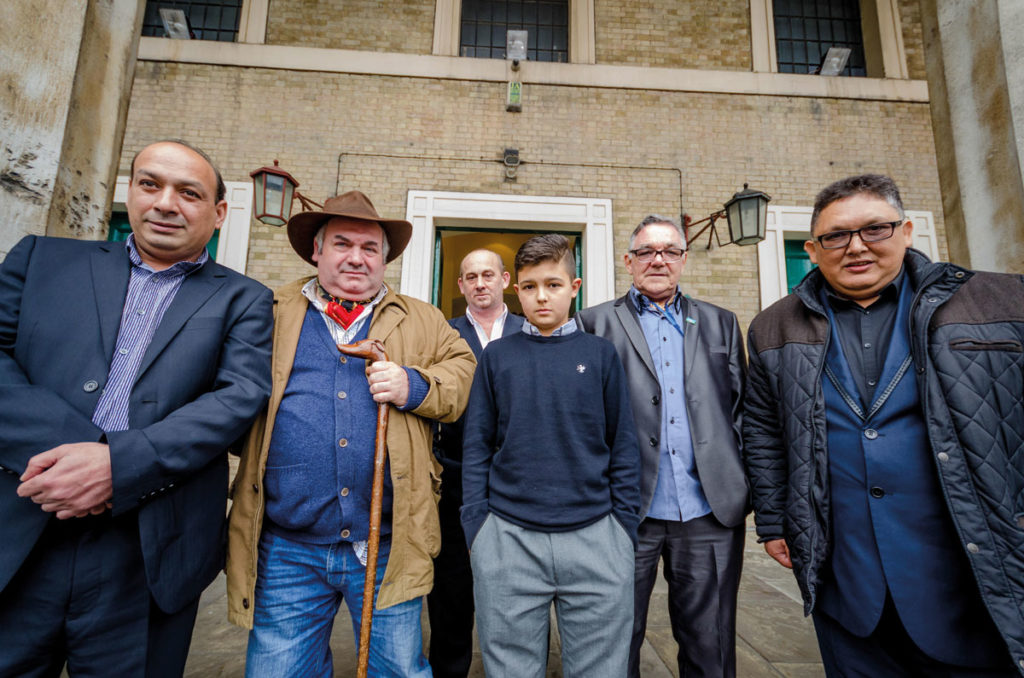
Unfortunately, the centuries of discrimination against the Romani community makes it harder to retain significant parts of their culture and history. During the Second World War, Nazis killed 500,000 Romani people in concentration camps. In the Romani language, the genocide is known as the Porajmos, meaning “The Devouring”. While “devour” conjures a powerful image, the mass killing of Roma people remains a relatively unknown aspect of Holocaust history. After the liberation of the Nazi concentration camps, governments began educating people on the past and compensating former Jewish prisoners. But, Romani people were excluded from this as they were not recognised as victims of the Holocaust. The Nazis continued to say that the Romani were taken to concentration camps purely
due to criminality, not their ethnicity, said Mihai Bica, a member of the Eastern European Roma community, and an Advocacy and Campaigning Project Worker for the charity Roma Support Group. Romani witnesses were not called upon during the Nuremberg trials for this reason. And shockingly, to this day, as Bica says, “there are European countries that do not recognise the Romani genocide.” According to the Council of Europe, Italy, Belgium and Russia recognise Romani deaths, but not as the crime of genocide. It was in 1982, only 38-years ago, that Germany acknowledged the deaths of Romani people as a genocide and rectified Holocaust education.
Read also: Travel Limitations are Leaving Global Citizens Behind
In light of this dark history, some positive steps are being taken. The UK has been celebrating Gypsy, Roma and Traveller History Month since 2008. Many schools have taken part in educational activities whilst participating in the celebration. Bica says that “we want to have our children in school, and we want education, it’s the negative experiences that have stopped us.” Bica told Truly Belong that the British school system is a good environment for Roma children to learn in, especially compared to other countries. He explained that there is no segregation of children, which is rife in Eastern European countries such as Bulgaria, Hungary, the Czech Republic, Romania and Slovakia. The European Roma Rights Commission has collected data that suggests 6,000 to 8,000 Roma children living in Hungary study in completely segregated classes from their non-Roma schoolmates. Bica says in the UK, it is “very easy for Roma children to blend, they’re not recognised for being Roma.”
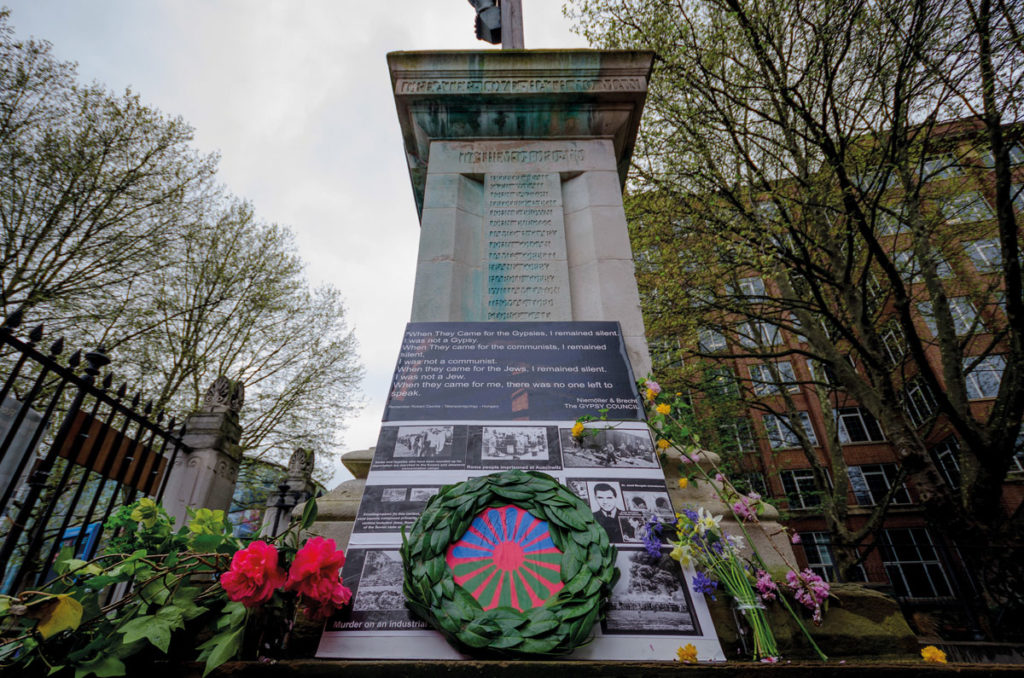
Universities are also improving their awareness of the issues that GRT face in accessing education. According to a report from King’s College London (KCL), only three to four per cent of all GRT accessed higher education in 2014. KCL has a programme to increase support for GRT communities, called “Rom Belong”. Christine Brown, the programme lead, says that Rom Belong engages with youth through “one to one advice, priority and special consideration” and “promotes role models of Gypsies, Roma and Travellers at university.” The programme also works to dispel stigma and is “a voice to remind people [to] include GRT in an educational space.”

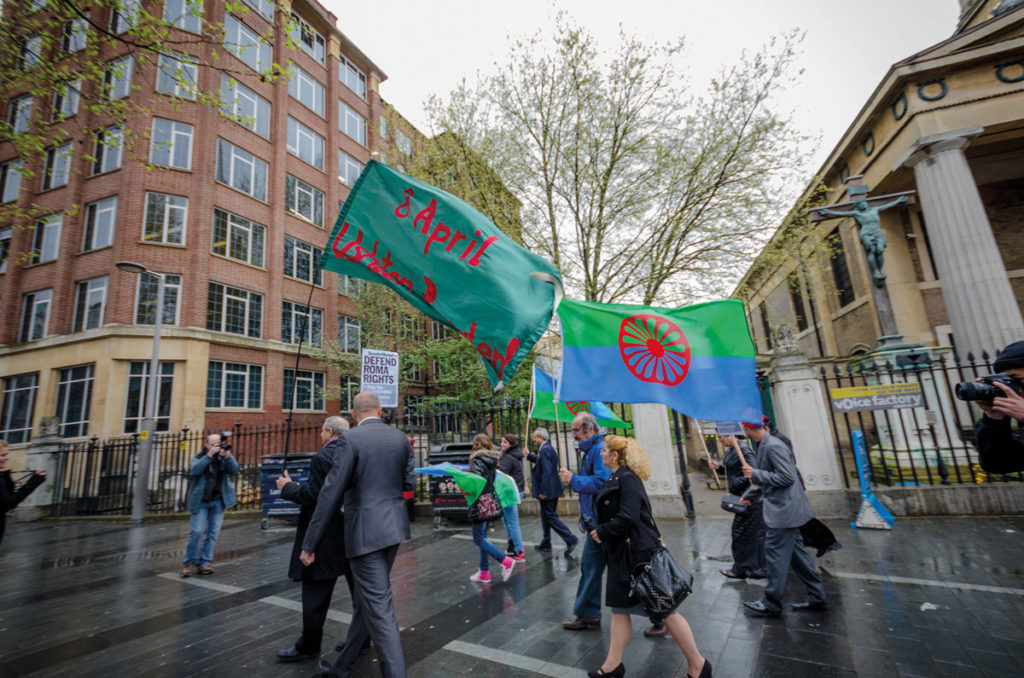
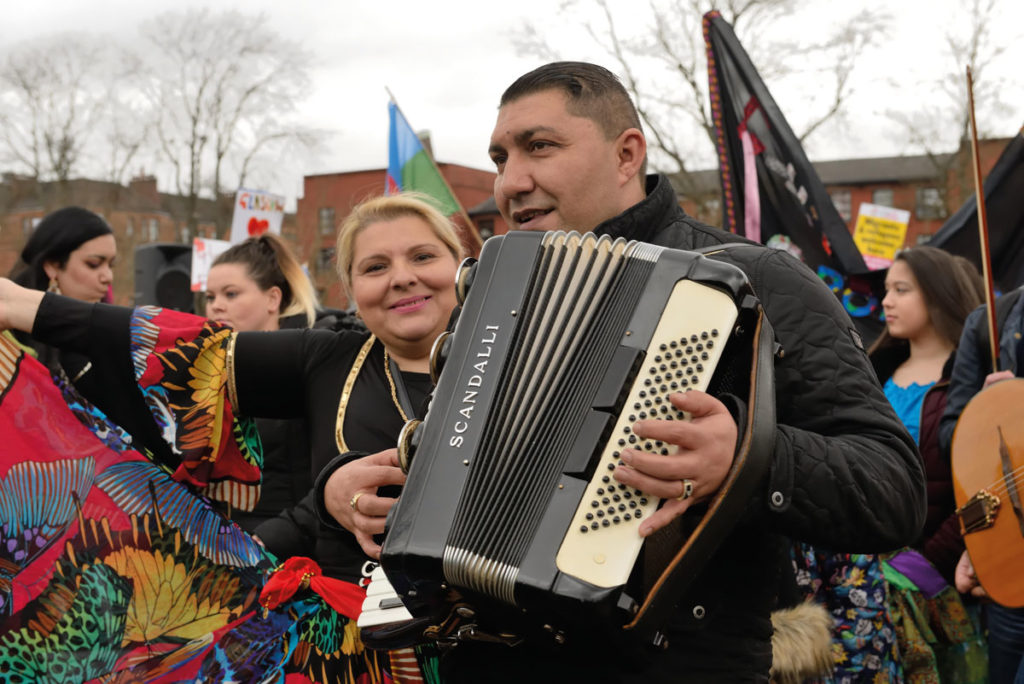
Other universities also provide support for GRT students. Lois, a Romani student at the University of Chester, describes her story in the Rom Belong film series, created with The Travellers’ Times. “My university has been excellent. They’ve offered me everything from funding opportunities to networking opportunities,” she says. Her advice to other minority students is to “be unapologetic in your pride and your heritage and where you come from.”
Charities like London Gypsies & Travellers also offer programs such as “Step Forward,” a project that empowers women by equipping them with IT skills so they can go onto further training or nd paid employment.
We only need to glance briefly at the story of Europe to see that Romani identity is resilient. Though Romani identity has been attacked throughout history, it continues to stand strong.
If our society doesn’t change the way it treats Romani people, we might soon find ourselves in a world with one less culture to celebrate.
“This story first appeared in the 2021 print issue of Truly Belong under the title “The Changing Identity of Romani People.“
- A Nomadic Community Fighting to Retain Their Culture and Heritage - 11th March 2021

